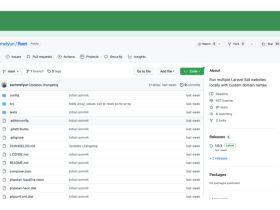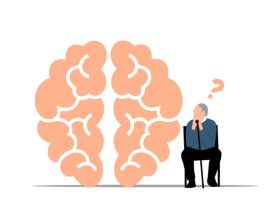Many in the field of digital marketing have speculated about the potential impact of artificial intelligence on our industry ever since OpenAI released ChatGPT in November 2022.
What about in-demand positions in the digital industry, like software developers and copywriters?
Will AI improve to the point where we don’t need human agents to field live chat and email inquiries from customers?
Is it possible to have something generate content like blog posts, pictures, videos, and landing pages without any human involvement whatsoever?
After spending the last three months trying out various AI applications, I can say with confidence that the answer is yes: artificial intelligence will reduce and simplify the amount of work we have to do in marketing, and some people may be out of a job as a result. But not the experts in their field.
First, though, let’s define artificial intelligence and explore its marketing applications.
Artifical Intelligence: A Definition
The goal of artificial intelligence (AI) research is to programme computers to mimic human intelligence in everyday situations. This includes things like seeing, hearing, reasoning, and understanding language and other complex concepts. It’s worth noting, though, that AI works best when it has access to high-quality input data and is guided in the right direction by a human. Because of this, I think “prompting” will soon become the single most crucial skill for any marketer to have under their belt.
In artificial intelligence, “prompting” means giving an algorithm all the information and direction it needs to make sound predictions or choices. If you’re training an AI model to identify cats in photos, for instance, it will do better if you give it access to a large data set of only cat photos rather than a small data set with a variety of subjects. To the same extent, an AI model’s effectiveness in advertising depends on the quality of the information it receives about its intended audience’s needs, likes, and dislikes.
For this reason, it is still necessary to provide machines like Chat GPT with sufficient data and numerous examples of what we need from them, even if they are destined to revolutionise the world of marketing and reduce the amount of work we have to do every day.
For example, in the field of marketing, understanding who you’re trying to reach is essential. Although artificial intelligence (AI) can aid in this regard by providing useful insights about the audience, it cannot replace human understanding of said audience. Understanding the intended audience and developing successful marketing campaigns requires a combination of AI power and human expertise. This is why I think the most successful marketers will be the ones who can combine in-depth knowledge of their field with the possibilities offered by AI to develop highly effective campaigns with less work and at a rate that is 10 times faster than anyone else.
Developments in the Future
The best AI-powered chat tools can currently write content, translate text, create visuals like logos and images, edit audio and video, and even write code. All of these features are quite useful, and many marketers already make use of them, but what else is on the horizon? We need to know where AI is headed and how we can easily incorporate it into our marketing strategies.
Also Read :What you need to know about Copenhagen Fashion Week for Fall/Winter 2023
In my opinion, we will be able to put AI to use in four primary ways within the next three to five years:
1. A Robotic Sales Force and Help Desk
Picture for a moment an artificial intelligence machine that has been connected to your website or CRM for a few months and has amassed millions of data points from customer inquiries and the responses provided by your support team. It ought to be able to fill in for a support staff member almost entirely, allowing your support team to be available around the clock. It will still require human oversight, but it should be able to answer the most common questions that come up when working with customers or potential ones on its own.
2. Making Stuff
Imagine if your YouTube videos were automatically transcribed into blog posts or if your voice was converted into a podcast and uploaded to all the major podcast platforms. If we give AIs access to our social media accounts, the number of posts that they can make on our behalf is practically infinite.
3. Constructing Websites
Image being able to tell a machine what kind of offer we have, who our target audience is, what colours we like, and what tone of voice we want to have in the copy, and then having sales pages generated in a matter of minutes. Web developers and writers may soon have this option.
4. Marketing Optimisation
All the major social media platforms already do this by tailoring their advertisements to users’ preferences, but AI has the potential to take this practise to the next level. It is likely that in the not-too-distant future, the advertising platform will automatically serve relevant content based on the user’s interests and keywords.
Human input and strategic guidance are still necessary for AI to be truly effective, but it can help with tasks like data analysis and automation. Additionally, as AI becomes more integrated into the workforce, some jobs may become obsolete, and workers may need to retrain for new roles. Experts, on the other hand, will always be in demand due to the fact that they bring something to the table that AI simply cannot: specialised knowledge and experience. Overall, the future of AI holds great promise, but especially for those who learn how to use it the right way.









Leave a Reply